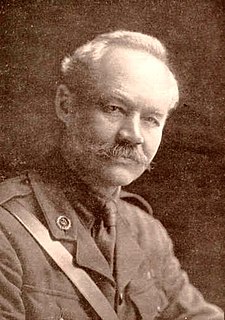A Quote by Johann Georg Ritter von Zimmermann
We never read without profit if with the pen or pencil in our hand we mark such ideas as strike us by their novelty, or correct those we already possess.
Related Quotes
I remember reading about a court case where a man tried to stab a judge with a pencil. There are Google pages full of similar instances around the world. It's obvious that the pencil lends itself to precisely that kind of use. It's not as lacking in dominance as you might think. I have an article on the fallacy of the designer intent because a lot of designers think they can design uses into technology. You can't do that. I use the pen, I make the mark, but the pen is also using me. The pen could be said to be allowing these kinds of marks. I can't do just anything with the pen.
I don't even own a computer. I write by hand then I type it up on an old manual typewriter. But I cross out a lot - I'm not writing in stone tablets, it's just ink on paper. I don't feel comfortable without a pen or a pencil in my hand. I can't think with my fingers on the keyboard. Words are generated for me by gripping the pen, and pressing the point on the paper.
We should always aim to read something different=not only the writers with whom we agree, but those with whom we are ready to do battle. Their point of view challenges us to examine the truth and to test their views...and let us not comment on nor criticize writers of whom we have heard only second-hand, or third-hand without troubling to read their works for ourselves...Don't be afraid of new ideas.
When we read, we are not looking for new ideas, but to see our own thoughts given the seal of confirmation on the printed page. The words that strike us are those that awake an echo in a zone we have already made our own—the place where we live—and the vibration enables us to find fresh starting points within ourselves
First, consider the pen you write with. It should be a fast-writing pen because your thoughts are always much faster than your hand. You don't want to slow up your hand even more with a slow pen. A ballpoint, a pencil, a felt tip, for sure, are slow. Go to a stationery store and see what feels good to you. Try out different kinds. Don't get too fancy and expensive. I mostly use a cheap Sheaffer fountain pen, about $1.95.... You want to be able to feel the connection and texture of the pen on paper.
Let us read the Bible without the ill-fitting colored spectacles of theology, just as we read other books, using our own judgment and reason, listening to the voice within, not to the noisy babel without. Most of us possess discriminating reasoning powers. Can we use them or must we be fed by others like babes?
I don't have a favorite cooking tool. In the kitchen, I always have my pencil and notebook in my hand. I cook more theoretically than I do practically. My job is creative, and in the kitchen, the biggest part of my creativity is theoretical. The pencil has a symbolic meaning for me. The type of person who carries a pencil around is the type of person who's open to change. Someone who walks around with a pen isn't; he's the opposite.
Creativity is the generation and initial development of new, useful ideas. Innovation is the successful implementation of those ideas in an organization. Thus, no innovation is possible without the creative processes that mark the front end of the process: identifying important problems and opportunities, gathering relevant information, generating new ideas, and exploring the validity of those ideas.
We exist only by virtue of what we possess, we possess only what is really present to us, and many of our memories, our moods, our ideas sail away on a voyage of their own until they are lost to sight! Then we can no longer take them into account in the total which is our personality. But they know of secret paths by which to return to us.
No one can write their real religious life with pen or pencil. It is written only in actions, and its seal is our character, not our orthodoxy. Whether we, our neighbor, or God is the judge, absolutely the only value of our religious life to ourselves or to anyone is what it fits us for and enables us to do.





































